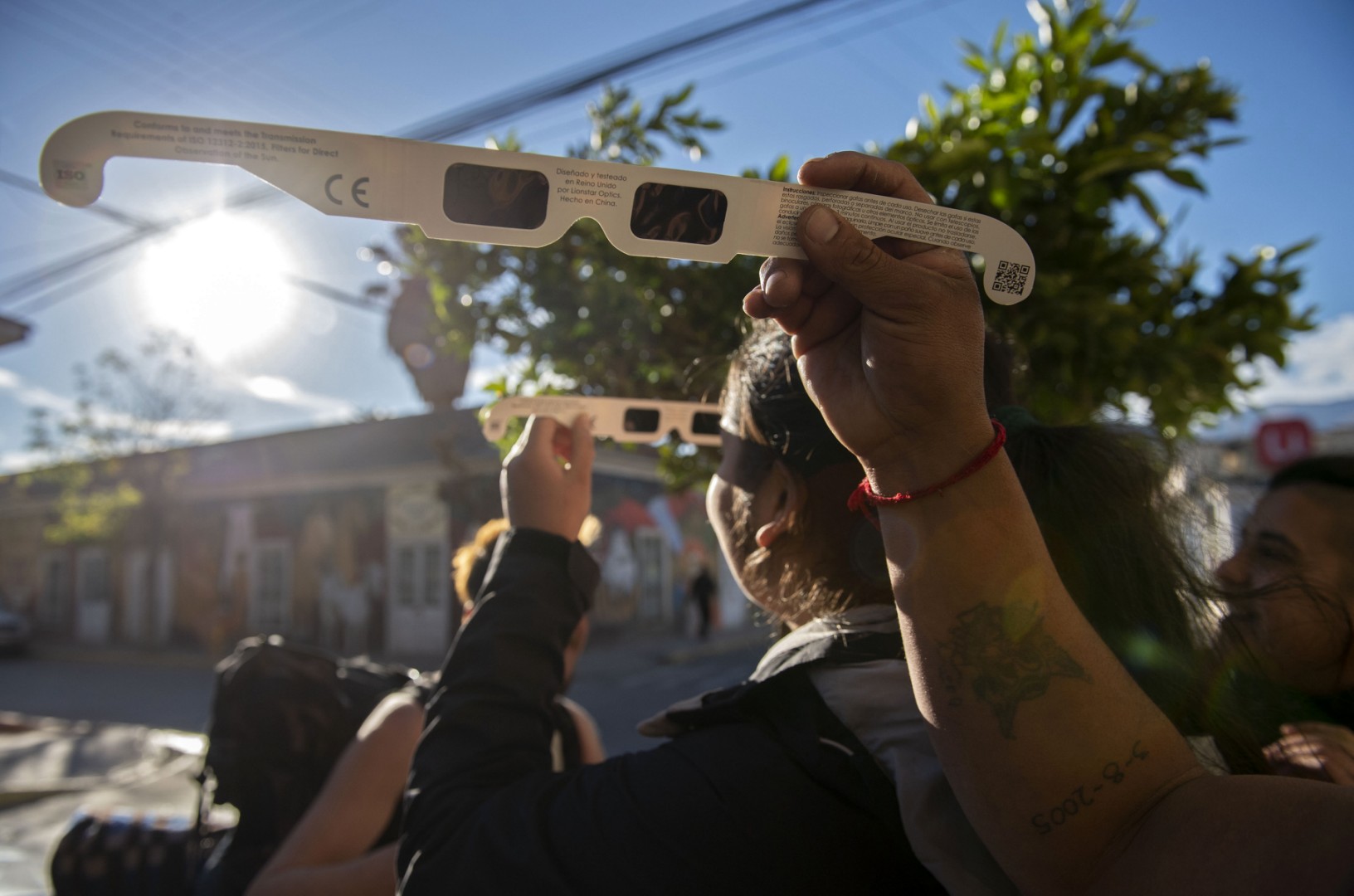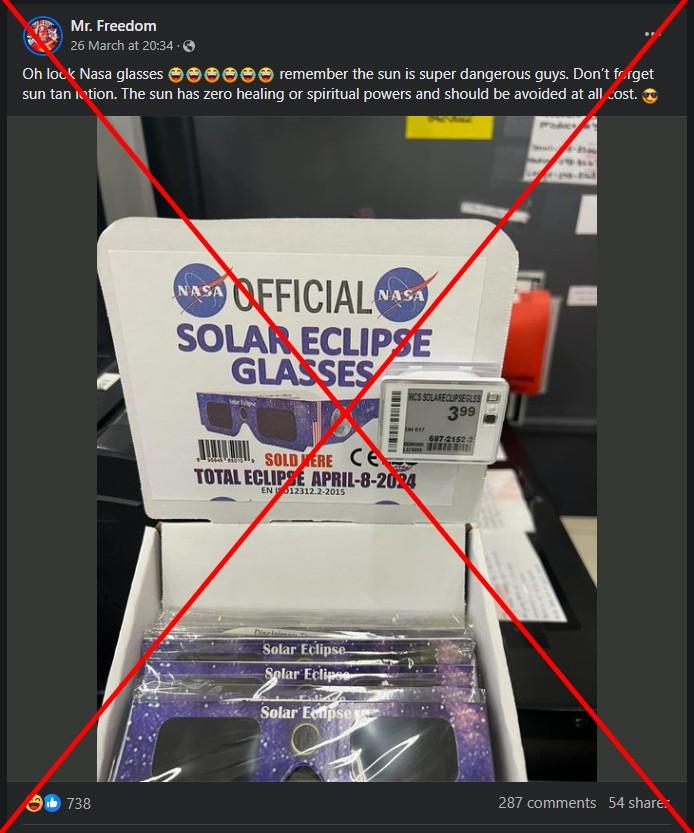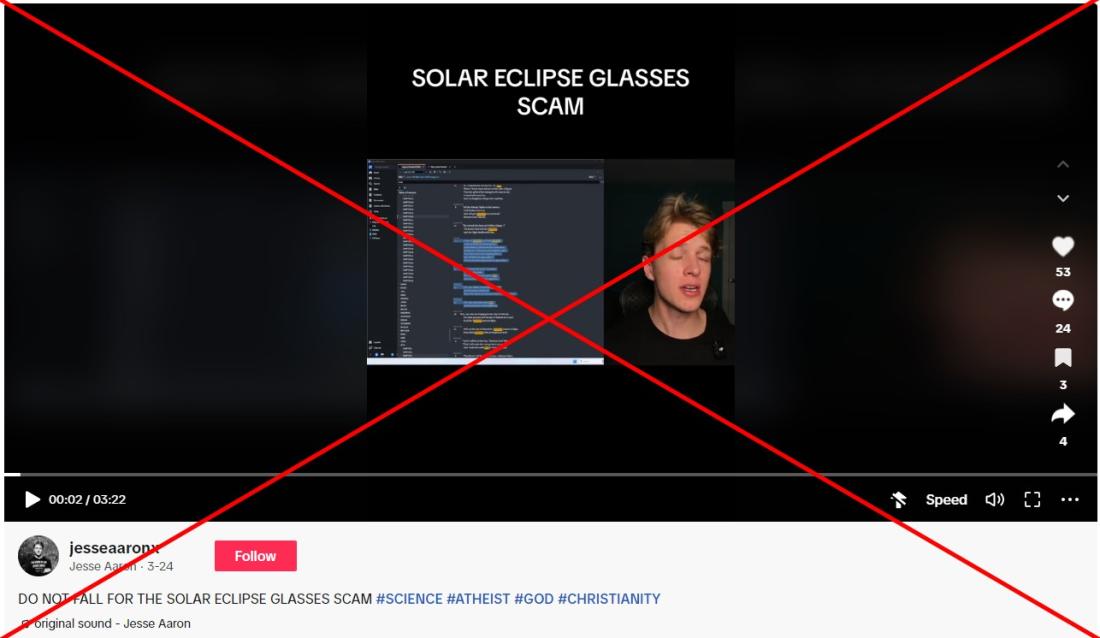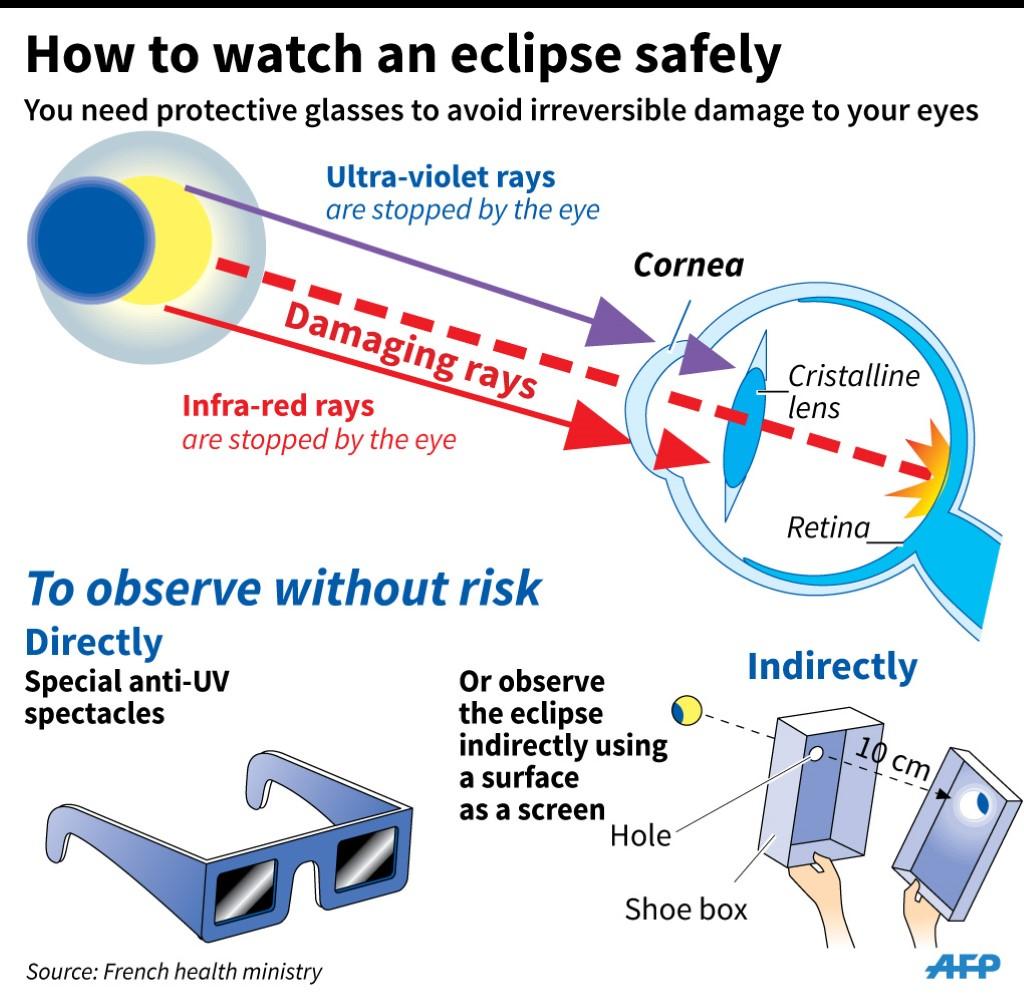
Experts recommend eclipse glasses, despite claims online
- This article is more than one year old.
- Published on April 4, 2024 at 22:57
- 3 min read
- By Gwen Roley, AFP Canada
"If the eclipse comes out on April 8th, look at it," says the speaker in a March 11, 2024 TikTok post with more than 136,000 views.
"Take the glasses off that they try to sell you or try to promote to you -- take the glasses off and look at it."
Other videos on TikTok call eclipse glasses "a scam" and advise people to forgo the protection in order to view a supposed "cosmology model." Posts on Facebook, meanwhile, imply those wearing glasses will miss out on "healing energy" from the sun.

Screenshot of a Facebook post taken March 28, 2024

Screenshot of a TikTok post taken April 4, 2024
But Sarah Gallagher, a professor of astronomy at the University of Western Ontario (archived here), said direct sunlight can always injure the eye.
"You should never, ever look directly at the Sun without eye protection," she said March 28.
AFP previously debunked social media posts discouraging the use of sunglasses, which experts say filter out harmful ultraviolet light from the Sun.
Direct sunlight can injure eyes
According to the American Academy of Ophthalmology, direct focused sunlight entering the eye can burn the retina (archived here).
"Just like when you have a magnifying glass and shine light through it," Gallagher said.
Ralph Chou, a professor emeritus of optometry at the University of Waterloo (archived here), said April 2 that low levels of light entering the eye trigger visual images that are transferred to the brain. But higher quantities of light from the Sun or other bright objects start chemical reactions that can damage or kill cells.
He said these types of injuries might go unnoticed because there are no pain receptors in the retina and the vision effects are not immediately apparent.

Illustrated explanation of how to watch an eclipse without damaging your eyes
Humans instinctively do not look directly at the Sun, Chou said -- but eclipses dampen that tendency.
"As the Moon covers more and more of the Sun, we're curious to see how that is happening," he said. "And so we look, and if you don't have the right protection, you get hurt."
He agreed with Gallagher that proper eclipse glasses are necessary to avoid injury, saying they should filter out all but 0.0003 percent of light from the Sun before it reaches the eye.
Chou added that someone in the path of totality -- where the Moon will block the entire Sun (archived here) -- can remove their protective glasses to view the moment of the total eclipse. But they should replace them once the Moon coverage returns to partiality (archived here).
"Know where you are so that you know whether in fact you can look safely without the help of viewers," Chou said.
Counterfeit concerns
While specialized eclipse glasses are not a scam, there have been reports of possible counterfeits sold before April 8 (archived here).
Chou said buyers should confirm their glasses are in compliance with standards developed by the International Organization for Standardization (ISO).
The ISO told AFP in an April 4 email that it does not issue certifications. But in order to meet the standards for eclipse glasses (ISO 12312-2:2015), certain information must be visible on the product or packaging (archived here):
- The name and address of the manufacturer
- Instructions for use in looking at the Sun or a solar eclipse
- Warnings that viewing the Sun without an appropriate filter can result in eye injury
- Warnings that damaged filters should be discarded
- Advice on storage and maintenance
- Information about when the product will be obsolete
The American Astronomical Society published a list of retailers selling standardized eclipse glasses (archived here). Chou said only very bright light sources, such as 100-watt incandescent bulbs or phone flashlights, should be just barely visible through viewers that meet ISO standards.
Read more of AFP's reporting on misinformation about the eclipse here.
Copyright © AFP 2017-2026. Any commercial use of this content requires a subscription. Click here to find out more.
Is there content that you would like AFP to fact-check? Get in touch.
Contact us
